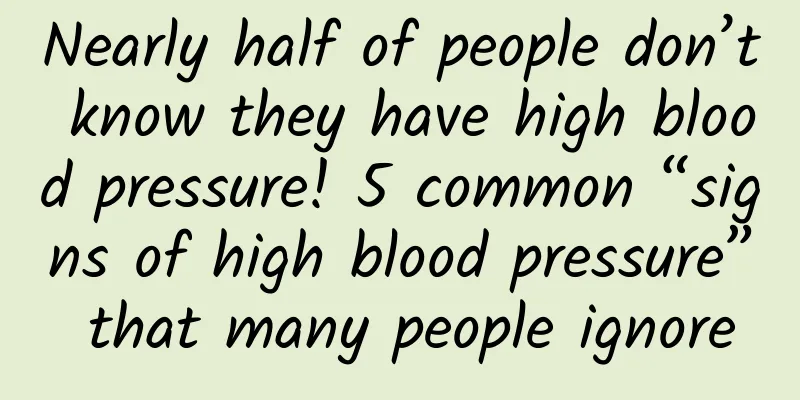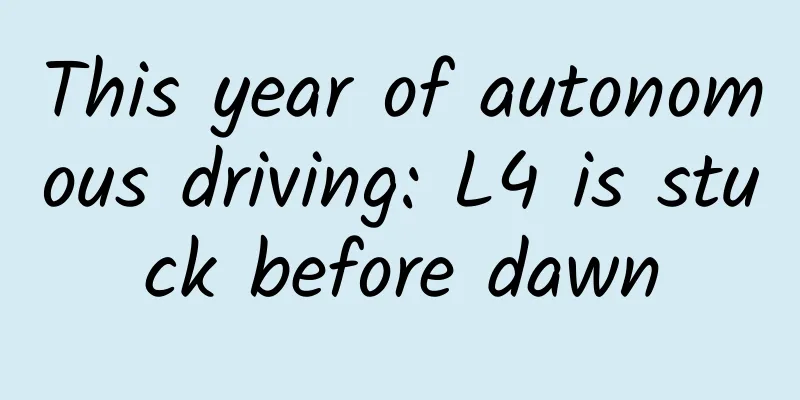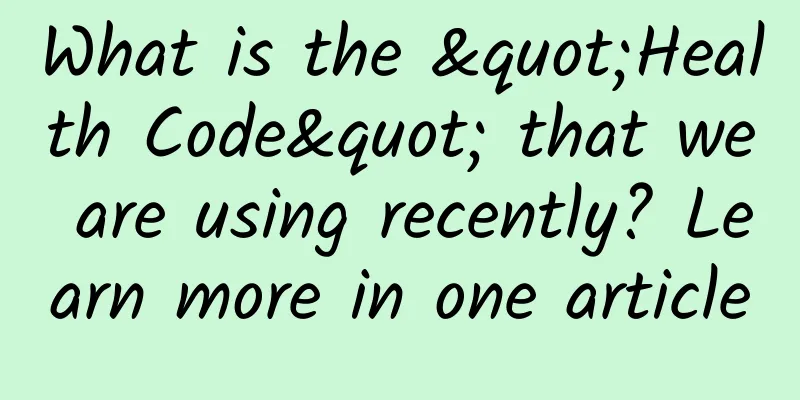Nearly half of people don’t know they have high blood pressure! 5 common “signs of high blood pressure” that many people ignore

|
Ms. He, 36 years old, is overweight. She suddenly felt dizzy when she got up in the morning a week ago. The symptoms were relieved only after resting for a few minutes. She did not take it seriously at the time. However, she had been experiencing recurrent dizziness over the past few days, and the dizziness became increasingly severe, sometimes accompanied by nausea and difficulty standing. So she went to the hospital for treatment accompanied by her husband. When Ms. He came to the hospital for treatment, her head CT scan showed no abnormalities. Physical examination results showed: blood pressure of 162/82 mmHg, clear consciousness but poor spirits, slightly enlarged heart border, regular rhythm, no pathological murmurs in the valve auscultation areas, physiological reflexes present, and no pathological signs elicited. Considering the results, the patient was preliminarily diagnosed with chronic hypertension . After communicating with Ms. He about her condition, the doctor recommended a combination of medication and daily conditioning to control her blood pressure, and to keep her blood pressure below 130/80 mmHg as much as possible. After a week of treatment, Ms. He's blood pressure was controlled at around 132/78 mmHg, her dizziness was significantly relieved, and she no longer experienced symptoms such as vertigo and nausea. Doctors warn that the incidence of chronic hypertension has been increasing and is becoming younger, but many young people suffer from hypertension without knowing it . Because there are no special symptoms in the early stages of hypertension, patients may accidentally discover that they have hypertension during a physical examination, but the damage has already occurred quietly. Therefore, patients should check their blood pressure regularly even if they have no symptoms so that hypertension can be detected and treated early. Hypertension, also known as the "silent killer", is an important factor in the development of cardiovascular and cerebrovascular diseases. The latest survey data show that the prevalence of hypertension among residents over 18 years old in China is as high as 27.9%, which means that approximately one in every four adults suffers from hypertension. However, nearly half of people with hypertension are unaware that they have it. According to the "China Cardiovascular Health and Disease Report 2022", there are 245 million patients with hypertension in my country, but the awareness rate of patients with hypertension is only 51.6%. Since hypertension is a chronic disease, most patients with hypertension develop the disease slowly and generally do not experience obvious discomfort symptoms in the early stages of the disease. They may only discover that their blood pressure is elevated when their blood pressure is measured. When patients experience the following 5 symptoms, they should be alert to high blood pressure! 01 Dizziness Dizziness is a common clinical manifestation of hypertension. When blood pressure rises, the cerebral blood vessels will adjust the cerebral blood flow accordingly, causing cerebral vasospasm and insufficient blood supply to the brain, leading to uncomfortable symptoms such as dizziness and headache. Patients will feel dizzy and have a feeling of being woozy. In severe cases, they will have persistent dizziness, which is extremely obvious when squatting. 02 Headache When blood pressure rises, it will cause changes in cerebral perfusion pressure. When the perfusion pressure increases, the intracranial pressure will increase, and the change in intracranial pressure will cause patients to experience headaches. Headaches caused by high blood pressure are a persistent dull pain that may also be explosive and may ease or worsen with fluctuations in blood pressure. 03 Chest tightness and shortness of breath Abnormal blood pressure will have a lasting impact on heart function , making it difficult for the left ventricle to eject blood into the aorta. That is, the left ventricle needs to overcome higher blood pressure to eject blood into the aorta, which will increase the load on the left ventricle. The increase in this burden will cause hypertrophy of the patient's left ventricular myocardium over time, leading to ventricular dilatation and even arrhythmia, causing chest tightness and shortness of breath. 04 Limb numbness Increased blood pressure can cause vasoconstriction dysfunction, increase limb numbness, and make it impossible for fingers, toes and other parts to move freely. Some patients often feel that their fingers are not flexible. 05 Nosebleeds The nasal cavity is rich in blood vessels and has thin walls. When blood pressure rises sharply, the blood vessels will be under great pressure. If the blood vessels in the nasal cavity rupture, nosebleeds will occur, and there is even a risk of cerebral hemorrhage. Why is hypertension becoming more and more common among younger people? 1. High-salt diet: "Heavy taste" is one of the main culprits of high blood pressure. With the change of dietary patterns, the sodium content in processed foods, snacks, and takeouts is higher than that in the original cooking methods. In order to dissolve more sodium, the blood volume in the blood vessels increases, leading to higher blood pressure. 2. Bad living habits: staying up late, drinking alcohol, smoking , etc. can lead to hormone disorders in the body, increased sympathetic nerve activity, increased vasoconstriction, and cause high blood pressure. 3. Obesity: If young people consume high-oil, high-sugar, and high-fat foods for a long time , coupled with factors such as sitting for long periods of time and lack of exercise, they will develop obesity and increase the risk of high blood pressure. 4. Genetic factors: When both parents have hypertension, the probability of their children developing the disease is as high as 46%; if one of the parents has hypertension, the probability of their children developing the disease is 28%; and 60% of hypertensive patients have a family history of hypertension. 5. High mental stress: Competition in modern society is fierce. Young people are under great pressure in work and life, and their mental tension can easily cause sympathetic nerve excitement, leading to increased secretion of catecholamines , which in turn causes vasoconstriction and increased blood pressure. Prevent high blood pressure by doing these 4 small things 1 Eat a healthy diet and adjust your diet structure Hypertension is directly related to diet . If you eat too much salt, the sodium ions in the salt will cause an increase in blood volume in the blood vessels, thereby increasing the pressure on the blood vessel walls and causing high blood pressure. The diet should be light and reduce sodium intake. The daily intake per person should not exceed 5 grams . It is recommended to do the following 3 things on a daily basis: 1. Reduce the use of condiments high in sodium, such as cooking salt, MSG, soy sauce, etc. 2. Avoid or reduce the intake of processed foods with high sodium content, such as pickles, ham, and roasted nuts. 3. Use a measured salt spoon when cooking to prevent excessive salt intake. Eat a balanced diet, increase the intake of fruits and vegetables rich in potassium and magnesium , such as spinach, rapeseed, bananas, etc., and replenish high-quality protein and vitamins in time , such as milk, eggs, etc. In addition, you should also control your fat intake . You can choose olive oil for cooking. It is recommended to consume 25 to 30 grams per day. Stay away from excessive calories , reduce the intake of high-calorie ingredients in food, such as fat, refined sugar, pastries, etc., and appropriately control the intake of staple foods. 2 Control your weight and increase physical activity Studies have found that obese people who weigh 25 kg more than the normal weight may have a systolic blood pressure 10 mmHg higher than normal people and a diastolic blood pressure 7 mmHg higher. Actively controlling weight and increasing physical exercise can effectively prevent high blood pressure. It is recommended to maintain your weight within a healthy range, with a body mass index of 18.5-23.9 kg/m², and a waist circumference of <90 cm for men and <85 cm for women. Recommended exercise: Each exercise should be mainly aerobic exercise, such as walking, jogging, cycling, swimming, etc., supplemented by resistance exercise, such as push-ups, dumbbells, etc. Exercise duration/frequency: It is recommended to exercise for 30 to 60 minutes throughout the day. For people who sit in the office for a long time, they can move their bodies intermittently, preferably for at least 10 minutes each time. 3 Scientific work and rest, improve bad living habits Studies have shown that people who sleep less than 6 hours a day are more likely to develop high blood pressure. It is recommended to ensure 7 to 8 hours of sleep a day. Adopt a scientific schedule, combine work and rest, maintain adequate sleep, and do the “three and a half minutes”: when you wake up at night, lie down for half a minute, don’t get up immediately; sit up for half a minute; let your legs hang down for half a minute. You also need to do “three and a half hours”: half an hour of activity in the morning; half an hour of nap at noon; and half an hour of walk in the evening. In addition, you should quit smoking and limit alcohol consumption, because excessive drinking will increase the risk of hypertension. Patients with a family history of hypertension, overweight, etc. should resolutely quit drinking. When they have to drink, they should slow down their drinking and avoid drinking highly potent liquor. Smoking promotes the secretion of norepinephrine and increases blood pressure. Quitting smoking helps reduce the harm caused by high blood pressure to blood vessels. 4 To be happy, you must learn to relieve stress Emotional fluctuations can cause high blood pressure. Many people’s blood pressure is above the standard when they quarrel, so it can be said that some high blood pressure is caused by anger . Therefore, do not let yourself be in a state of long-term anxiety, tension, and irritability . You should relax more, reduce mental stress, and maintain psychological balance to effectively prevent high blood pressure. It is recommended to do something that interests you every day, such as reading, listening to music, painting, flower arranging, traveling, etc., to keep your body and mind relaxed and happy. Entertainment activities should be moderate , avoid playing chess, watching TV, playing mahjong, etc. for a long time, and try to refuse to participate in stimulating activities . The "Chinese Hypertension Clinical Practice Guidelines 2022 Edition" mentions that stress reduction intervention is beneficial for preventing hypertension: 1. Breathing control: Breathe slowly and regularly before going to bed every day (preferably with the help of professional breathing equipment), with a target breathing rate of <10 times/minute, 15 minutes/time, and a weekly practice time of >40 minutes. 2. Meditation and yoga: Meditate twice a day , each time for about 20 minutes; do yoga three times a week, each time for about 30 minutes, which can also help relieve stress. References: [1] Chinese Guidelines for the Prevention and Treatment of Hypertension (2018 Revised Edition)[J]. Chinese Journal of Cardiology, 2019, 24(01): 24-56. [2] National Center for Cardiovascular Diseases, Chinese Medical Doctor Association, Hypertension Committee of Chinese Medical Doctor Association, et al. Clinical Practice Guidelines for Hypertension in China[J]. Chinese Journal of Cardiovascular Diseases, 2022.50(11):1050-1095. [3] Chen Yuanli. The phenomenon of younger people suffering from hypertension and its prevention in Shenzhen[J]. Modern Hospital, 2006(07):134-135. [4] Li Chunbo. Experience of health education for patients with hypertension[J]. Chinese Ethnic and Folk Medicine, 2012, 16:87. [5] Ge Junbo, Xu Yongjian, Wang Chen. Internal Medicine (9th Edition)[M]. Beijing: People's Medical Publishing House, 2018: 252-253. [6] Liu Yanfeng, New Standards for Diagnosis and Treatment of Modern Cardiology Diseases[M]. Zhengzhou: Henan University Press, 2019: 128-129. [7] Yang Baofa, Food and Drug Taboos for Hypertension and Related Diseases[M]. Beijing: China Traditional Chinese Medicine Press, 2016: 125. [8] Cao Jian, New Diagnosis and Treatment of Hypertension at Home and Abroad[M]. Zhengzhou: Henan Science and Technology Press, 2020: 303. |
<<: Through carbon dioxide, scientists can "customize" your happiness
Recommend
Ideas for setting up information flow accounts, a must-read for beginners!
A good information flow account structure helps u...
New trends in new media content marketing in the beauty industry!
During this year’s 618, the battle reports of maj...
Lighthouse inheritance | Wu Mengchao: A doctor with a heart of compassion and a heart of bravery
He performed the first liver cancer middle lobect...
How big are the health risks of using plastic bottles?
Many elders have this habit: no matter whether it...
A complete analysis of Pinduoduo’s operating model and methods
Let’s talk about Pinduoduo today. New Market In t...
It took only 9 hours to return to Earth. How come Shenzhou-13 is so fast?
Mixed Knowledge Specially designed to cure confus...
Exchange cooperation tutorial: Things you don’t know about exchange
1. The significance of volume exchange cooperatio...
What should I pay attention to when applying for Baidu Account Manager qualifications?
What should I pay attention to when applying for ...
Growth Hacking: How to Increase User Conversions?
Growth Haker is no longer a strange term. The ori...
Intel's return to discrete graphics: built on core graphics with 1.542 billion transistors
Intel occupies most of the world's graphics c...
How much does it cost to be a beer agent? How much can a county-level beer agent earn in a year?
You can call Snow Flake's manufacturer in Han...
What are user portraits and user life cycles? 3 tips to teach you how to do user operations
Three prerequisites for doing a good job in user ...
How to do viral marketing well? 3 types and 4 elements you must know
Viral marketing is a very effective way to achiev...
Gaia's "Zero-Basic Novice Short Video Monetization Training Camp" new account has a million traffic in 3 days and breaks the weight
Course Contents: Chapter 1 How to monetize short ...
Typed yet flexible Table View Controller
[[163982]] UITableView is like bread and butter f...









